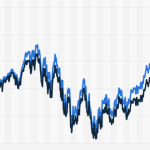The Danish accounting system is highly structured and ensures transparency in financial reporting. Understanding the nuances of bookkeeping in Denmark is vital for businesses to comply with local regulations and maintain accurate records. We will explore the key aspects of accounting in Denmark, the role of a Danish accountant, and how businesses can streamline their bookkeeping processes.
Legal requirements for bookkeeping in Denmark
In Denmark, businesses must comply with the Danish Financial Statements Act (Årsregnskabsloven), which sets out the rules for bookkeeping and accounting. Bookkeeping in Denmark is essential for all businesses operating here. This legislation is designed to ensure transparency and adherence to local regulations. It underscores the need for businesses to keep detailed, accurate, and easily accessible financial records. Whether large or small, all businesses must track their financial activities, including income, expenses, assets, liabilities, and other financial transactions.
These records must be stored for a minimum of five years and be available for inspection by the Danish tax authorities (SKAT). This helps ensure that businesses can substantiate their financial situation when required and remain compliant with Danish law.
Key requirements include:
- Using an authorized format for financial reporting
Danish law dictates that financial statements must follow an approved format. The specific format depends on the size and structure of the company. Smaller businesses may use simplified reports, while larger businesses or publicly traded companies must prepare more detailed and comprehensive financial reports. This ensures consistency and allows for comparability between businesses in Denmark.
- Timely and accurate transaction recording
The Danish Financial Statements Act requires businesses to record their financial transactions promptly and accurately. This includes documenting all income, expenses, purchases, and sales as they happen. Recording transactions promptly helps businesses maintain up-to-date financial records, simplifying cash flow management, tax reporting, and reducing errors during audits.
- Keeping records in Danish or, where applicable, English
Although Danish is the official language for accounting and bookkeeping, businesses that are not based in Denmark or operate internationally may maintain their records in English. However, when submitting official documents, such as tax returns, they must be in Danish for compliance with Danish authorities. Companies should ensure their records are accessible in the required language for legal compliance.
By adhering to these guidelines, businesses in Denmark not only meet their legal obligations but also promote transparency and accountability, fostering trust with stakeholders, investors, and regulatory bodies.
Benefits of professional accounting services in Denmark
Hiring a professional accounting firm in Denmark can significantly ease the complexities of bookkeeping and financial management, especially for businesses navigating the intricacies of local regulations. Professional accountants bring valuable expertise, tools, and resources that can save time, reduce risk, and optimize financial performance. The key benefits of working with a professional accounting service in Denmark include:
1. Expertise in Danish accounting practices
Professional accountants in Denmark are highly knowledgeable about the country’s specific accounting standards, tax regulations, and financial reporting requirements. They are well-versed in the Danish Financial Statements Act and other relevant laws, ensuring that your financial records are always compliant. By leveraging their expertise, businesses can avoid costly mistakes and ensure that their bookkeeping practices align with the latest legal and regulatory changes. Accountants also stay updated on new industry trends and best practices, helping businesses adapt and improve their financial strategies.
2. Assistance with tax optimization and compliance
One of the key advantages of hiring a professional accounting firm is the support they provide in tax optimization and compliance. Danish tax laws are complex and subject to change, which can be challenging for businesses to navigate on their own. Professional accountants have the knowledge and experience to identify opportunities for tax deductions, credits, and exemptions that could lower a business’s tax burden. They can also ensure that all tax filings are accurate, timely, and compliant with Danish regulations, reducing the risk of penalties or audits from the Danish tax authorities (SKAT).
3.Access to advanced bookkeeping software and tools
Accountants often use advanced bookkeeping software and tools that streamline financial management and improve accuracy. These tools can automate many aspects of bookkeeping, such as invoicing, expense tracking, and financial reporting. By working with an accounting firm, businesses gain access to these sophisticated systems without the need to invest in expensive software themselves. Additionally, accountants can integrate these tools with other financial systems, ensuring seamless data flow and real-time financial reporting. This level of automation not only saves time but also helps businesses maintain up-to-date and accurate financial records with minimal manual effort.
In summary, professional accounting services in Denmark offer businesses the expertise, tax advantages, and technological support necessary to manage finances efficiently and compliantly. With the assistance of a skilled accountant, companies can focus on growing their business while ensuring their financial operations are well-organized, transparent, and in line with Danish regulations.
Digital solutions for bookkeeping in Denmark
In Denmark, businesses are increasingly turning to digital solutions to simplify and enhance their bookkeeping practices. These tools not only improve efficiency but also help businesses stay compliant with local regulations. Some of the most popular digital solutions include:
Cloud-based accounting software
Cloud-based accounting platforms, such as e-conomic and Dinero, are widely used in Denmark for managing finances. These systems allow businesses to access their financial data securely from anywhere, automate many of their bookkeeping tasks, and collaborate easily with accountants or financial advisors. By storing data in the cloud, businesses eliminate the risk of losing important financial records due to hardware failure and ensure that their information is always up-to-date.
Automated invoicing and expense tracking
Automation has revolutionized invoicing and expense management in Denmark. With automated invoicing software, businesses can generate and send invoices with just a few clicks. These systems integrate with bank accounts, making it easy to track payments and keep an eye on outstanding invoices. Additionally, automated expense tracking tools help businesses monitor spending in real-time by categorizing and recording expenses as they occur. This reduces human error and ensures accurate financial reporting.
Real-time financial reporting systems
Real-time financial reporting tools enable businesses in Denmark to monitor their financial health on a continuous basis. These systems provide up-to-the-minute insights into cash flow, profit margins, and other key financial metrics. With this level of visibility, businesses can make informed decisions quickly, identify financial trends, and adjust their strategies to stay competitive. Real-time financial reporting also helps businesses comply with tax regulations by ensuring that financial records are always up-to-date and accurate.
By incorporating these digital solutions, businesses in Denmark can streamline their bookkeeping processes, reduce administrative burdens, and focus on growth while ensuring compliance with local financial regulations.
VAT compliance for businesses in Denmark
Value-added tax (VAT) is a critical component of the Danish tax system, and businesses operating in Denmark must comply with VAT regulations to avoid penalties and ensure smooth operations. VAT is applied to most goods and services in Denmark, and understanding how it works is essential for businesses of all sizes. This chapter will explore VAT compliance in Denmark, including registration requirements, invoicing, filing, and VAT deductions.
1. VAT registration requirements
In Denmark, businesses are required to register for VAT if their taxable sales exceed a specific threshold, which is currently DKK 50,000 annually. This applies to businesses selling goods or services, whether they are based in Denmark or abroad. If a business reaches the registration threshold, it must apply for a VAT number from the Danish tax authorities (SKAT). Once registered, the business will be required to charge VAT on its sales and remit the collected VAT to SKAT.
Even if your business does not meet the threshold, voluntary registration may still be beneficial, especially for businesses involved in trade with other VAT-registered entities. This allows the business to reclaim VAT on expenses, which can be a significant advantage.
2. VAT rates in Denmark
Denmark has a standard VAT rate of 25%, which is applied to most goods and services. However, there are reduced rates for certain goods and services, such as food, books, and medical supplies. Businesses must be aware of the applicable VAT rates for the goods and services they provide to ensure they are charging the correct amount.
For example:
- Standard rate: 25% (applied to most goods and services)
- Zero rate: Some specific goods and services are exempt from VAT, including financial services and insurance.
- Reduced rates: Certain goods and services, such as transportation and books, may be subject to lower VAT rates.
Businesses need to stay up-to-date with any changes to VAT rates to ensure compliance.
3. Invoicing and VAT collection
When VAT is charged on sales, businesses are required to issue invoices that clearly show the VAT amount. Invoices must include specific details, such as the VAT registration number, the total amount of the transaction, and the applicable VAT rate. It is also important to maintain a proper record of all invoices, both issued and received, as they are critical for VAT reporting.
For cross-border transactions, special VAT rules may apply. Businesses must be aware of whether they need to apply VAT on international sales or purchases, especially when trading within the European Union or with countries outside the EU.
4. Filing VAT returns
In Denmark, VAT returns must be filed periodically, typically every quarter or month, depending on the business’s size and VAT liability. These returns report the VAT collected on sales and the VAT paid on purchases. Businesses must submit VAT returns to SKAT, and the payment must be made by the due date to avoid penalties and interest.
The VAT return should clearly show:
- The VAT on sales (output VAT)
- The VAT on purchases (input VAT)
- The net VAT due or refundable.
In Denmark, VAT returns can be submitted electronically via the SKAT online portal, making the filing process more efficient and streamlined.
5. VAT deductions for businesses
One of the main advantages of being VAT-registered in Denmark is the ability to deduct input VAT (the VAT paid on purchases) from the output VAT (the VAT collected on sales). This means businesses only pay the difference between the VAT they charge customers and the VAT they pay on business expenses.
For example, if a business sells goods for DKK 100,000 + VAT (DKK 25,000), and it paid DKK 15,000 in VAT on its purchases, it can deduct the DKK 15,000 from the VAT it owes, resulting in a payment of DKK 10,000 to SKAT.
However, not all expenses qualify for VAT deductions. Businesses must ensure that the purchases are directly related to their business activities. Personal expenses or non-business-related purchases cannot be deducted.
6. Penalties for non-compliance
Failure to comply with VAT regulations can lead to significant penalties, including fines, interest on overdue payments, and potential audits. Common reasons for non-compliance include failing to register for VAT on time, incorrect VAT reporting, or late VAT payments. To avoid penalties, businesses should ensure that they are fully compliant with all VAT requirements, maintain accurate records, and file returns on time.
7. VAT and International trade
For businesses engaged in international trade, understanding VAT rules for cross-border transactions is crucial. When trading within the European Union (EU), VAT may be exempt on certain goods and services, provided both businesses are VAT-registered in their respective countries. For international sales to non-EU countries, the VAT treatment may differ, and businesses must verify whether they need to apply VAT.
Bookkeeping in Denmark is more than just a regulatory requirement—it is a cornerstone of sound business management. By understanding the legal framework, leveraging professional expertise, and adopting modern digital tools, companies can navigate the complexities of Danish accounting with confidence. Whether you are a small startup or an established enterprise, prioritizing efficient bookkeeping will pave the way for sustained growth and success in Denmark’s dynamic business landscape.
Lynn Martelli is an editor at Readability. She received her MFA in Creative Writing from Antioch University and has worked as an editor for over 10 years. Lynn has edited a wide variety of books, including fiction, non-fiction, memoirs, and more. In her free time, Lynn enjoys reading, writing, and spending time with her family and friends.















